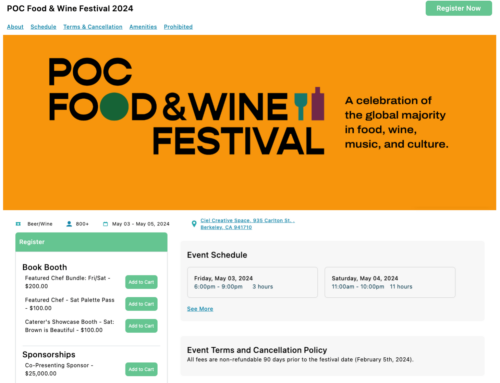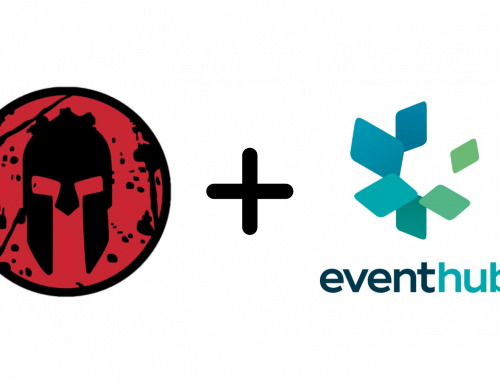Virtual Event Tools For Success
The show must go on! As you all have seen over the past couple of weeks, live virtual events have taken off. From concerts to conferences, it seems like everyone is finding a way to keep fans and audiences involved during quarantine. With many organizers trying their hand at virtual programming for the first time, we wanted to offer some of the most popular virtual event tools to help you be successful.
To watch the replay of a recent expert panel we hosted on the State of the Live Events Industry, click here.
Virtual Expo / Vendor Village: Coming Soon
EventHub wants to make sure that organizers had a platform to offer meaningful virtual partnerships to support their virtual programming. One that includes virtual vendors, exhibitors, and sponsors integrated into their virtual event. I’m proud to mention for the first time in our blog that on June 1, EventHub is launching a first-of-its-kind live virtual expo / vendor village platform that will allow event partners to have high quality touch points with attendees, and engage them in real-time from virtual booths. Here is our teaser clip, and to schedule a 1:1 early-look demo with yours truly, pick a time on my calendar here.
Top Tools for Virtual Events
In the spirit of supporting organizers who have added or are considering adding virtual event programming, I wanted to offer some helpful tools for producing virtual events. Many of these are free or cheap. You should also know that neither I nor EventHub get any kickbacks from the ones that aren’t free. I hope you find the below list helpful in your planning efforts!
Main Programming / Main Stage Live Streaming for Virtual Events:
- YouTube Live – It seems like the industry go-to for live streaming events. YouTube allows for streaming using webcam, mobile, or encoder streaming. Attendees can also easily interact with one another via the live chat. They also allow you to promote your event with a trailer. For plug and play, YouTube is the best option.
- Twitch – Twitch is another good option for streaming live programming. The set-up is a little more advanced that Youtube but also offers a slightly more interactive experience for attendees. Twitch is the go-to platform for video game streaming and e-sports. If your audience falls into either of those categories, I would recommend Twitch.
Attendee Interaction Video Streams for Live Virtual Events:
- Daily.co – One-click access to a video chat room. No need to install any applications or sign-in to any accounts. One-click and you are live in a video chat room. There is also white label capability on enterprise accounts.
- Zoom Meeting – Zoom has become the standard virtual event tool for any video conferencing. They offer a free account that allows meetings for up to 40 minutes. Zoom also has a webinar service as a part of their premium platform. Their webinar service is suitable for large presentations with attendee interaction control.
Donation/Tip Apps:
- Venmo – Attendees can quickly send money via their phone for tips or donations. Venmo charges a 3% fee for payers if they use their credit card. Sending money from debit cards and bank accounts does not incur a fee. Venmo allows the receiver to transfer money to a bank account for free generally in 48-72 hours.
- Paypal – In my humble opinion, Paypal works better on a desktop than it does on mobile. You can easily create links for attendees to send money directly to you. It is easy to connect to a merchant account.
Storefronts for Virtual Events:
- Shopify – Shopify is the easiest and most common website builder for e-commerce. Their wizard helps you set-up your website to optimize for conversions (sign-ups, purchases, etc.). They charge a monthly fee based on membership level starting at $29 a month and a payment processing fee. Shopify is the best option if you are looking to increase your sales online. In terms of virtual event tools, Shopify also offers lots of plug ins to enhance the virtual attendee experience, such as Postmates delivery for home delivery during virtual programming.
- Etsy – Etsy is built mostly for artists and craft vendors. They charge a minimal listing fee, payment processing fee, and advertising fee (if one of their ads lead to a sale). Etsy is considerable cheaper than Shopify, but their marketplace works more like eBay than a personal e-commerce website.
Social Media Scheduling Tools:
- SkedSocial – SkedSocial social media scheduling software is mostly built for Instagram but also allows Twitter and Facebook postings. They have comprehensive reporting for Instagram Stories and Posts. The introductory plan starts at $25 a month.
- Storito – Storico is a desktop/web-based Story tool for Instagram. The platform provides an editor to create and schedule your Instagram Stories while using some of the native Instagram Story features like “locations” in your post. You can sign up and schedule 10 Stories a month for free.
Data Capture Tools:
- Google Analytics – GA is the most comprehensive tool in tracking website traffic. Google Analytics is a must install. Track your website visitors; see where they came from, where they went, and how long they were on the site. This way, you can optimize your page for conversions (sign-ups for the event), and you also now have website traffic information to present to sponsors and vendors.
- Google Forms – Google Forms is a quick and easy form builder. Google Forms is a great way to collect attendee data quickly. This information can be used to sell potential sponsors, upsell other events, and create an email database for future events or newsletters.
- Facebook Pixel – I only recommend installing the Facebook Pixel if you plan on using Facebook Ads to promote your event. The Pixel works similarly to Google Analytics and will track website viewers but takes that information and feeds it back to Facebook AI to improve your Facebook ad campaign retargeting.
Lastly, if you plan on having a paid virtual event, you will need some type of paywall. Many ticketing companies have created live virtual event paywalls. There are a bunch of ticketing companies out there, and we will let you decide which one is best for you!
Completely transitioning from a live event to a live virtual event can be a significant change. With the EventHub Expo / Virtual Village and this laundry list of other resources, you will be off a great start.
I am looking forward to partaking all of your new live virtual events in the future!





